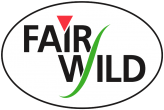Building capacity for sustainable wild harvesting of wild plants in and around protected areas of the Danube Region
October 2017—Various workshops have been held under the “Local Economy and Nature Conservation in the Danube Region” (LENA) project to help promote the implementation of local sustainable wild plant harvesting activities.

The LENA project[1] involves 13 partners from seven countries along the Danube. It aims to connect people to nature and support livelihoods and business opportunities for low-income communities based in and around protected areas.
Four capacity-building workshops were jointly organized with local project partners and held at the designated pilot sites: Szatmár-Beregi Nature Park, Hungary, Rusenski Lom Nature Park, Bulgaria, Deliblato Sands, Serbia and Gorenjska region, Triglav National Park, Slovenia.
They aimed to identify the needs of local communities and to find innovative solutions to support their livelihoods and create business opportunities.
Around 80 relevant stakeholders participated in the events, including representatives from local collectors, processing and trading companies, university experts, protected area authorities and local politicians actively participated in the events. Discussions focused on issues such as the threat of losing valuable traditional knowledge, the vanishing number of collectors, necessary training on sustainable harvesting practices, business planning and relevant legislation.
The FairWild Standard and its Principles were introduced to the participants to demonstrate possible opportunities, solutions and best practice examples of successful sustainability frameworks to guide wild harvest and trade, including through the FairWild certification scheme. The informative “FairWild cartoon” was translated with the help of the local project partners and is now available with subtitles in Bulgarian, Hungarian, Serbian and Slovenian.
Thanks to the support of our project partners, and the enthusiastic participation of so many organizations and stakeholders, these workshops have helped strengthen commitments towards harmonizing the relationship between local communities and their protected environments. These activities will further contribute to potentially creating ‘green job’ opportunities and generating additional income while conserving biodiversity in the target areas through sustainable trade in wild plant resources.
Kirsten Palme, TRAFFIC’s Programme Officer Medicinal Plants Europe and LENA project managerThe recent meetings will be followed by a regional capacity building workshop in Budapest, Hungary at the beginning of December 2017. This regional event will bring together all LENA pilot activity partners and external experts to exchange knowledge and experiences and find transnational solutions for the shared challenges facing wild plant harvesting in the Danube.
Notes:
[1] Project LENA—Local Economy and Nature Conservation in the Danube Region—is co-funded by the European Union funds (ERDF, IPA, ENI) and implemented through the Danube Transnational Program, with the support of the European Regional Development Fund, co-financed by the European Union and the Hungarian State.

About FairWild

The increasing demand for wild plants—as ingredients for food, cosmetics, well-being and medicinal products—poses major ecological and social challenges. The pressure on potentially vulnerable plant species can endanger local ecosystems and the livelihoods of collectors, who often belong to the poorest social groups in the countries of origin.
As a response to these concerns, the FairWild Foundation is working with partners worldwide to improve the conservation, management and sustainable use of wild plants in trade, as well as the livelihoods of rural harvesters involved in wild collection. TRAFFIC has supported the development of the FairWild Standard, and now hosts the organization’s Secretariat under a partnership agreement.





